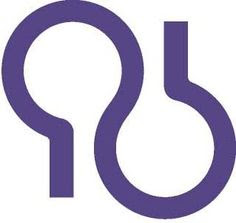A healthy heart indicates robust health, but heart attacks
and heart diseases are leading causes of premature death across the world. Is
it possible to ensure a healthy heart? Is there a way to avoid heart diseases?
The answer is yes. Besides hereditary and congenital
reasons, all other factors leading to heart diseases can be barred by adapting
a healthy lifestyle.
Warning signs are important. One should know the warning
signs of a heart attack. This is necessary not only for heart patients or their
caregivers, but for everyone. Warning signs can help you recognize the onset of
a heart attack and avoid heart diseases by ensuring proper and timely aid.
The five most important warning signs of heart attack and
heart diseases include:
• Chest pain is an important warning sign of a heart
disease. It might range from mild discomfort to severe pain. The pain can be a
heaviness in the chest or a strong pressure on the chest. However, some
patients do not experience this warning sign.
• A pressure or feeling of tightness in the jaw, shoulder,
arm, or neck; or suffocation due to excessive pain in the chest or shoulders
can be important warning signs of a heart disease.
• Indigestion, nausea, and vomiting in people with strong
digestion without a noticeable reason are warning signs of a heart disease or
heart attack. This is true especially if there is no reason for the symptoms,
they are unexpected, and if you do not find relief from general home remedies.
• Sweating may result from a stressed heart, which needs
significantly more effort to accomplish pumping blood. Profuse sweating is a
warning sign of heart diseases, especially when there is not much physical
activity.
• Shortness of breath or physical exhaustion is a sign of
excessive physical exertion. Nevertheless, when shortness of breath or
exhaustion occurs without much physical exercise, it can be among the early
warning signs of heart diseases. The body might be indicating a hindrance in
the heart’s functioning through this warning sign. When noticed, consult a
doctor and seek medical aid.
Remember, warning signs of a heart attack can vary.
• There may be a reason for the blockage of the heart’s
pumping actio
• Another medical
condition may be affecting the heart of the patient.
• Warning signs of heart diseases can be mild or persistent
or sudden and severe.
• Some patients experience a combination of warning signs
but others might experience just one or two.
Even if you have a healthy heart regular checkups are
necessary. This helps avoid heart diseases and ensures you have a healthy
heart. In case you have a family or personal history of heart disease or have
experienced a heart attack, remain alert about the warning signs and ensure
medical aid is available in time to avoid a heart attack.












